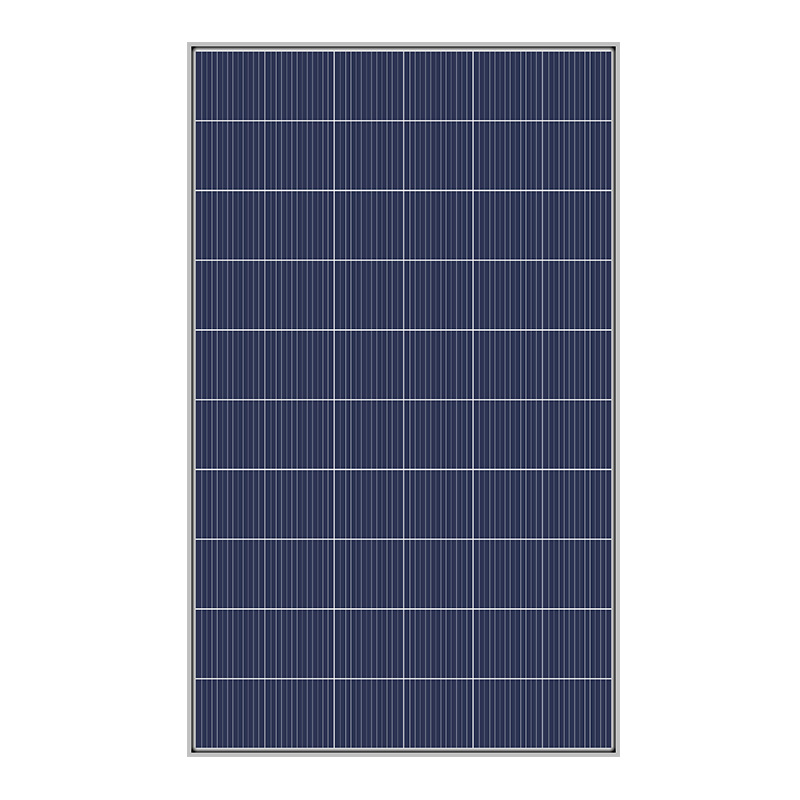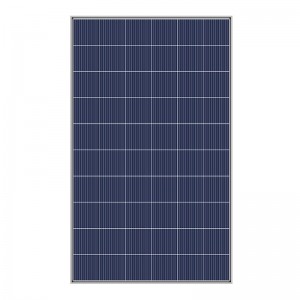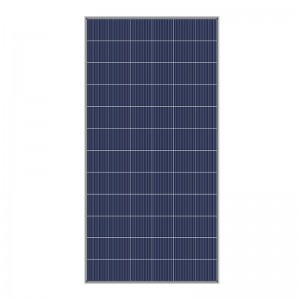POLY, 60 full cells 270W-290W solar module
High Power Generation/High Efficiency
Enhanced Reliability
Lower LID / LETID
High Compatibility
Optimized Temperature Coefficient
Lower Operating Temperature
Optimized Degradation
Outstanding Low Light Performance
Exceptional PID Resistance
| Cell | Poly 157*157mm |
| No. of cells | 60(6*10) |
| Rated Maximum Power(Pmax) | 270W-290W |
| Maximum Efficiency | 16.6-17.8% |
| Junction Box | IP68,3 diodes |
| Maximum System Voltage | 1000V/1500V DC |
| Operating Temperature | -40℃~+85℃ |
| Connectors | MC4 |
| Dimension | 1640*992*35mm |
| No.of one 20GP container | 310PCS |
| No.of one 40HQ container | 952PCS |
12-year warranty for materials and processing;
30-year warranty for extra linear power output.

* Advanced automated production lines and first-class brand raw material suppliers ensure that solar panels are more reliable.
* All series of solar panels have passed TUV, CE, CQC, ISO,UNI9177- Fire Class 1 quality certification.
* Advanced Half-cells, MBB and PERC solar cell technology, higher solar panel efficiency and economic benefits.
* Grade A quality, more favorable price, 30 years longer service life.
Widely used in residential PV system, commercial & industrial PV system, utility-scale PV system, solar energy storage system, solar water pump, home solar system, solar monitoring, solar street lights, etc.
60 full battery 270W-290W solar modules are a popular choice for residential and commercial solar installations. They are ideal for roof and ground mounted systems where space is limited. Their compact size and high efficiency make them a cost-effective option for homeowners looking to reduce their electricity bills and carbon footprint. These modules are also commonly used in small off-grid applications, such as camping or boating, as they can be easily transported and installed in remote locations.
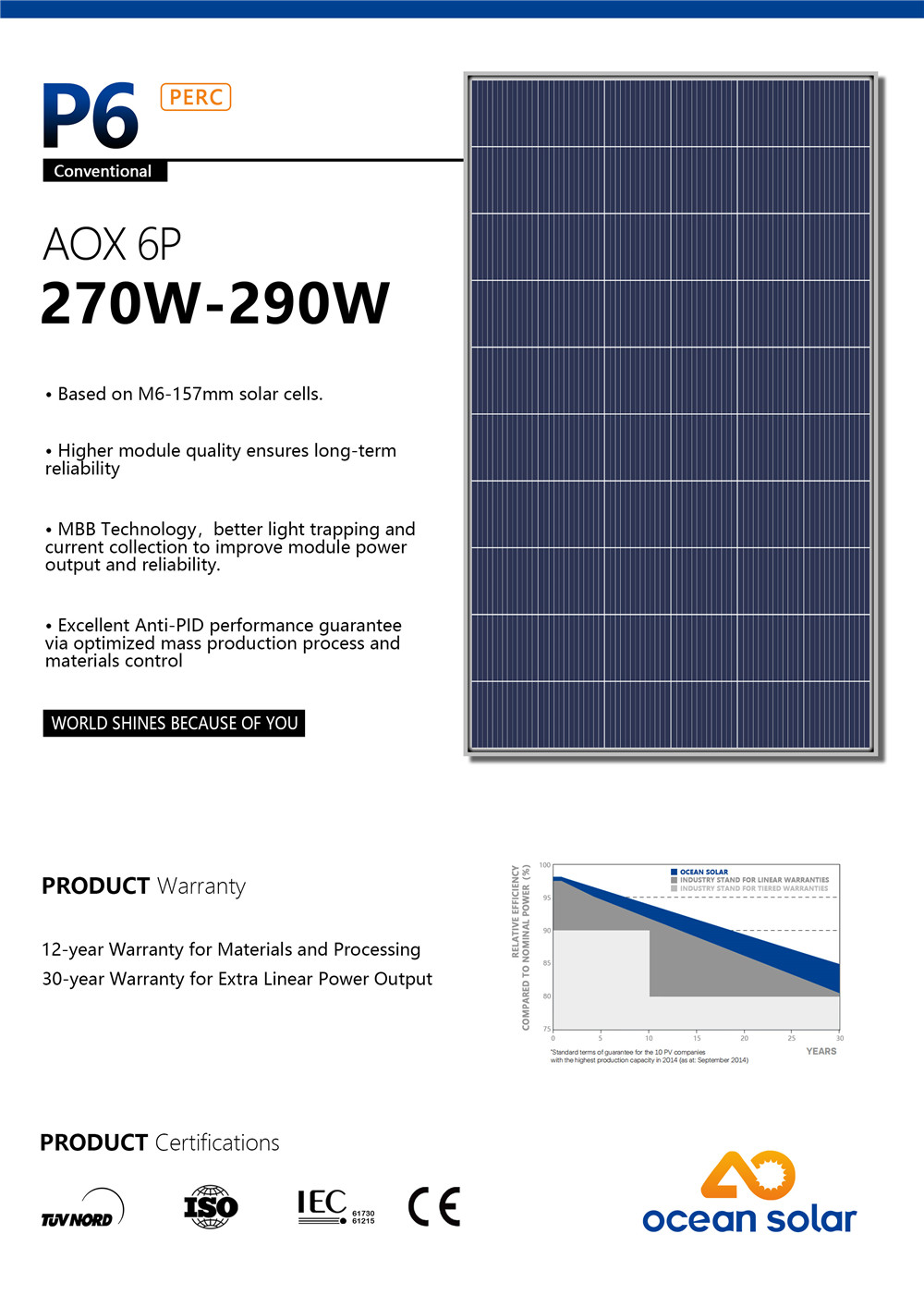
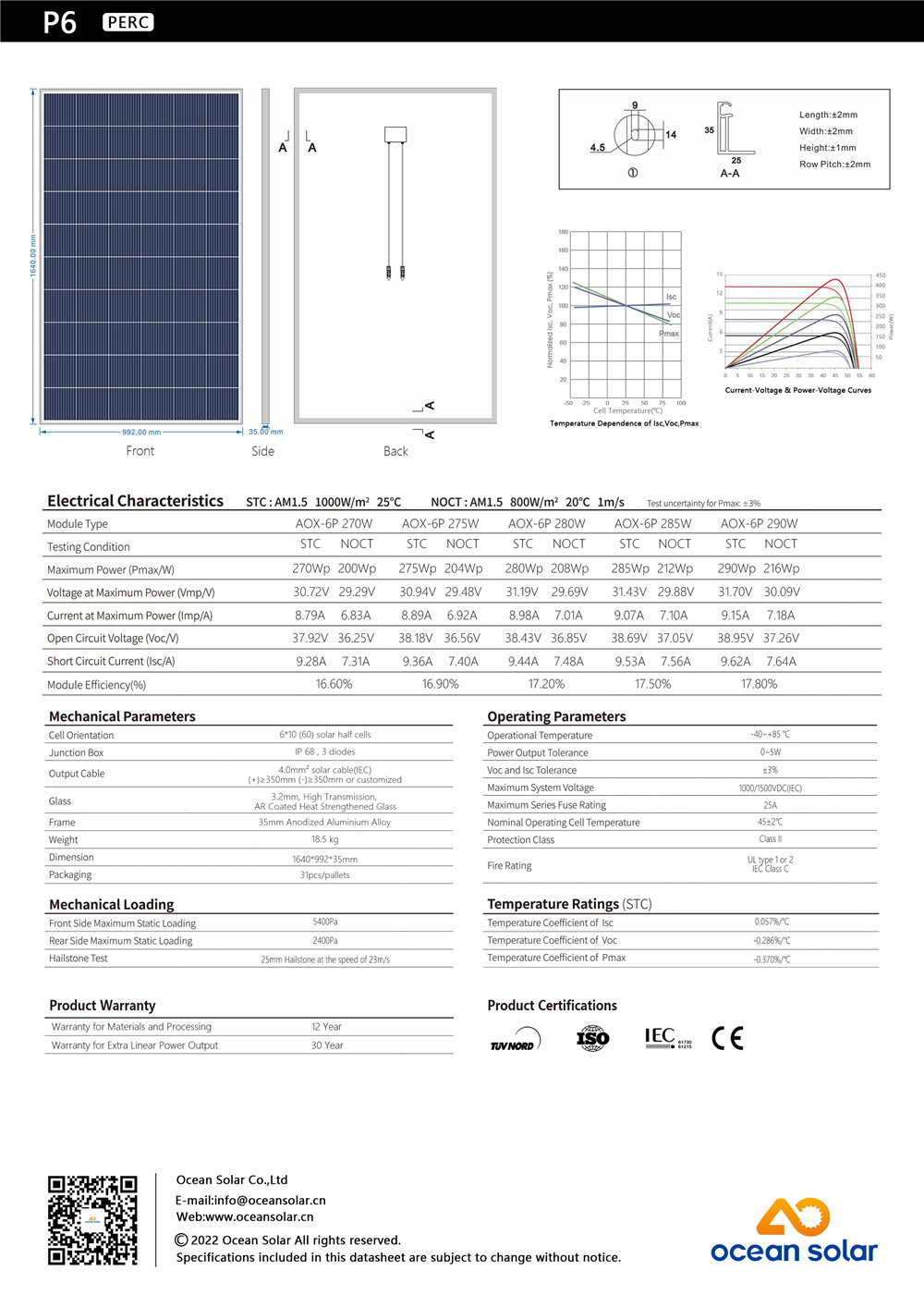
60-cell and 72-cell solar modules are different sizes of solar panels used in solar installations. 60-unit panels are generally smaller and more compact, while 72-unit panels are larger and more powerful. The choice between the two depends on the specific needs of the solar installation, such as available space, desired output and budget.
A polycrystalline or polycrystalline solar module is a type of solar module that is made using silicon cells that are melted and cast into ingots. These ingots are then sliced into wafers, which are then used to make solar cells. The solar cells are then interconnected and packaged to create solar modules. Polycrystalline cells are slightly less efficient than monocrystalline solar cells, but are less expensive to produce.
Here are some advantages of using polycrystalline silicon solar modules:
1. Cost-effective: Polycrystalline solar modules cost less to produce than monocrystalline solar modules, making them a budget-friendly option for homeowners and businesses looking to install solar panels.
2. Improve efficiency: As technology advances, the efficiency of polycrystalline silicon solar modules becomes higher and higher, and the difference between polycrystalline silicon and monocrystalline silicon solar modules becomes less obvious.
3. Eco-friendly: Using solar energy reduces your carbon footprint and helps promote sustainable energy solutions.
4. Durable: Polycrystalline silicon solar cell modules have a long service life and can withstand harsh weather conditions.
In summary, polycrystalline silicon solar modules are an excellent choice for those looking for an economical solar panel that is efficient, durable, and environmentally friendly. They may not be as efficient as monocrystalline solar panels, but advances in technology have made them a popular choice for homeowners and businesses looking to install solar panels.

